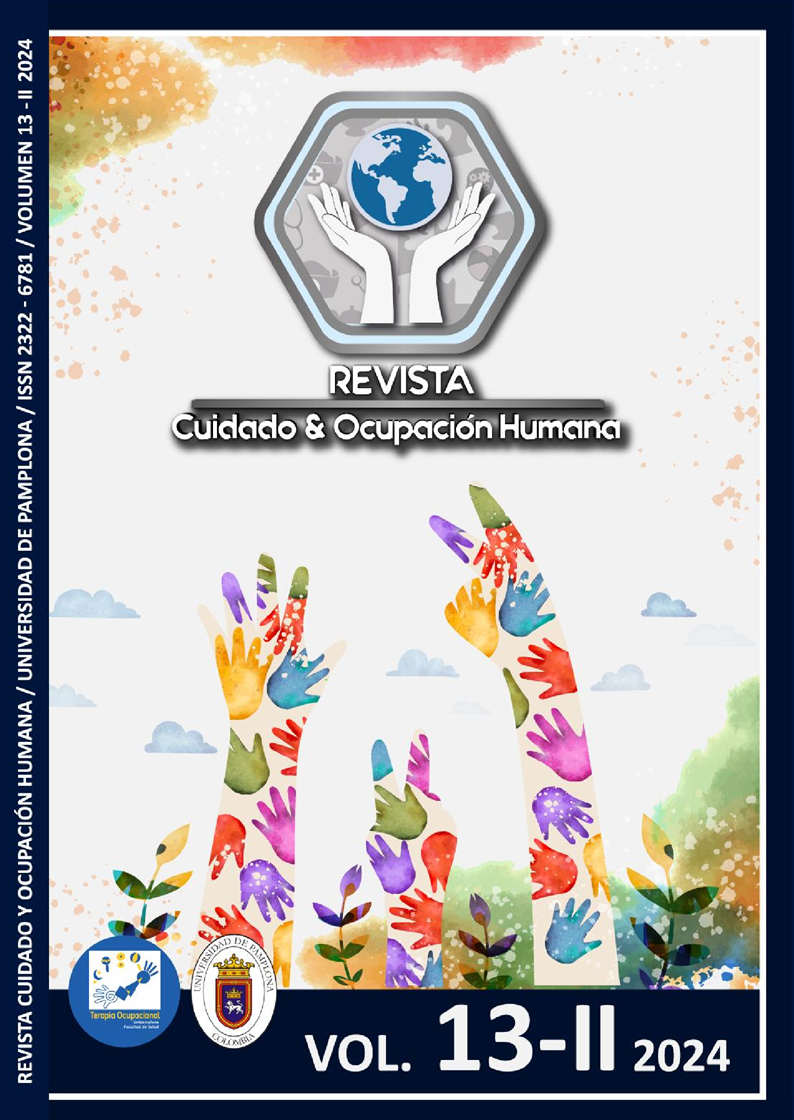Relationship Between Dementia and Performance in Activities of Daily Living in Older People: A Systematic Review
DOI:
https://doi.org/10.24054/coh.v13i2.4255Abstract
The present study aimed to describe the relationship between dementia and performance in activities of daily living in older adults, considering its impact on autonomy and quality of life. A systematic review was conducted in databases such as PubMed, Scopus, and SciELO, using keywords in both English and Spanish related to older adults, dementia, independence, performance, and activities of daily living. Both institutional studies and full-text reflective articles were included, and a risk of bias assessment was performed through critical reading to ensure the methodological quality of the selected studies. A total of 50 studies that met the inclusion criteria were analyzed. The findings allowed the identification of six predominant types of dementia in the older adult population, including Alzheimer’s disease and vascular dementia. In addition, levels of dependency in the performance of activities of daily living were categorized, which facilitated the description of the relationship between different types of dementia and the degree of functional impairment in older adults. The results show that dementia directly influences the loss of independence and functional participation, highlighting the importance of personalized, timely, and occupation-centered interventions. These should not only aim to maintain autonomy but also to improve the overall quality of life and holistic well-being of older adults living with dementia.
Downloads
References
Demencia [Internet]. Who.int. [citado el 16 de octubre de 2024]. Disponible en: https://www.who.int/es/news- room/fact-sheets/detail/dementia.
Serrano-Salinas. Abordaje no farmacológico de las demencias. Revista Salud y Educación. 2023; Vol. 11 (22): p. 136-138.
Guerra, J. C., Guerra Hernández, M. A., & Perera Miniet, E. (2008). Impacto psicosocial del síndrome demencial en cuidadores cruciales. Revista Cubana de Medicina General Integral, 24(1), 0–
0.http://scielo.sld.cu/scielo.php?pid=s086 4-21252008000100005&script=sci_abstra ct
Demencia. Brain and Nerves [Internet]. 2002 [citado el 17 de octubre de 2024]; Disponible en:
https://medlineplus.gov/spanish/dement ia.html
Huang J. Demencia [Internet]. Manual MSD versión para profesionales. [citado el 17 de octubre de 2024]. Disponible en:
https://www.msdmanuals.com/es/profes sional/trastornos- neurol%C3%B3gicos/delirio-y- demencia/demencia?ruleredirectid=757
American Occupational Therapy Asociation (2008). Occupational therapy practice framework: Domain and process (2nd ed.). American Journal of Occupational Therapy, 62, 625-683.
Divulgaciondinamica.es. [citado el 17 de octubre de 2024]. Disponible en: https://campus.divulgaciondinamica.es/ manuales/543.2017CLAV8.pdf
Mahoney F.I., Barthel DW: Functional evaluation: the Barthel Index. Md State Med J 1965; 14:2
¿Qué tipos y grados de dependencia existen? Listado completo [Internet]. El Rincón del cuidador. [citado el 17 de octubre de 2024]. Disponible en: https://www.elrincondelcuidador.es/otr os-cuidados/tipos-dependencia.
Downloads
Published
Issue
Section
License
Copyright (c) 2024 Revista Cuidado y Ocupación humana

This work is licensed under a Creative Commons Attribution-NonCommercial-NoDerivatives 4.0 International License.








